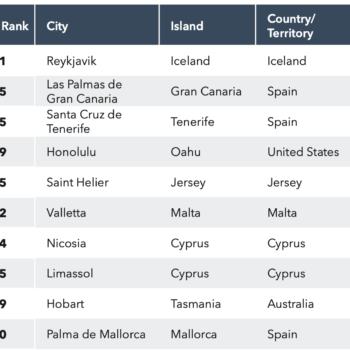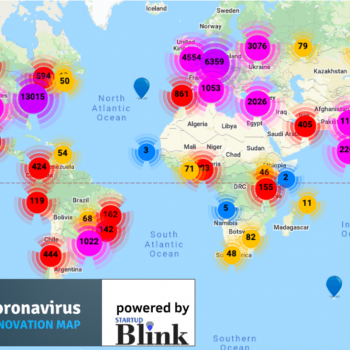It is a boon to have a bustling startup ecosystem in your country or city. Apart from boosting the local economy, it also places you on a global map and attracts talent to your country, which is why most countries are striving to improve their local startup ecosystems. A thriving startup ecosystem is achieved by combining all the key components: entrepreneurs, accelerators, mentors, investors, government, educational institutions, corporations, and service providers, each proactively involved in startup ecosystem development.
To gauge your local startup ecosystem, you can download and read our Global Startup Ecosystem Index Report which ranks 1,000 cities and 100 countries throughout the world. Our report also summarizes the highest ranking cities and countries and explains what got them there. On that note, we will be discussing many strategies for developing startup ecosystems in this article.
Strategies that help develop Startup Ecosystems
As mentioned earlier, there are many components of a healthy startup ecosystems: entrepreneurs, accelerators, mentors, investors, governments, corporations, educational institutions, and service providers. When all of these come together and work with the common goal of nurturing the ecosystem, it is bound to be successful. The general consensus is that having a growing startup ecosystem boosts the local economy by creating more jobs, attracting corporations, creating a talent pool, and encouraging tech development. This article covers how successful startup economies impact urban economies.
To start off, while developing a startup ecosystem, it is important to research how successful startup ecosystems have evolved and learn from them. This research can also help governments adopt policies taken from successful ecosystems. Read more here about the importance of startup ecosystem research.
Here are some strategies to develop startup ecosystems:
Start with correct data and metrics: Before improving your local ecosystem, you need to first know where you rank. Start with clear data and metrics and understand your startup ecosystem ranking. Our Ecosystem Rankings Report ranks 954 cities and 125 countries around the world, and our website provides in-depth data on startups, coworking spaces, accelerators, leaders, investors, reporters, organizations, and sponsors across all cities globally. This can help you understand your current position and how to improve it further.
To analyse data effectively, filter it by industry and check the strength of your ecosystem. Additionally, you want this data to be visible to everyone within your own startup ecosystem. This can be achieved by building open databases and startup maps of your city to allow free flow of information about your startup ecosystem.
Furthermore, check the local market in terms of what resources are already present that can help entrepreneurs. If there are already coworking chains, accelerators, service providers, and educational institutions present, these form the backbone of a startup community in your city.
Provide better ease of doing business: National and local governments would be wise to create better policies that are more startup friendly and provide an easier way to do business. Policies that provide better taxation or exempt startups from taxes during launch years, easing the business registration process, and allowing non-residents or foreigners to easily open businesses are some ways in which entrepreneurism is encouraged. Most governments are now focused in playing an active role in boosting their startup ecosystems. Here are some great examples of countries whose governments have been proactive on this front.
Another way of facilitating easier policies is by speaking to startups directly to determine if they are facing any issues or if there is something missing from the startup ecosystem. If there have been startups in the past that have left the area then they could provide valuable information on their reasons for moving out. The idea is to make entrepreneur’s life as easy as possible and reduce bureaucracy as much as possible.
Ensure the ecosystem has hubs to network: Ensure there are hubs within the ecosystem. Coworking chains and accelerators are great hubs that allow the startup community to work together. By facilitating the community in this way, startup founders can easily connect with resources and the ecosystem will generate an abundance of opportunities.
Networking and connecting with the right people is very important in developing a strong entrepreneurial community. Events catering to startups and corporations can be great platforms for networking. Many coworking spaces and accelerators conduct similar events, like Hackathons or Pitching events. The aim is to engage with the startup community regularly and keep the ecosystem connected. Members of the community can benefit from each other’s experiences, and perhaps even evolve into prospective clients, investors, co-founders, team members, or mentors.
Boost the investment ecosystem: Helping the investment ecosystem and creating policies that benefit investors can directly boost the startup ecosystem. If a country is at the nascent stage of developing it’s startup ecosystem, the government should try to take the place of investors and provide funding to startups. A great example of this is Israel during the early stages of startup ecosystem development. Israel began by providing financial support for commercial R&D, which ultimately helped during market failures.
Promote talent: A startup ecosystem is highly dependent on the availability on talent. Smart ways of attracting talent include:
- Having educational institutions that can create a skilled workforce. This can happen when the government encourages the development of such institutions locally.
- Acquiring talent from outside the country. This can happen with there are policies that allow and promote the easy migration of talented workers and entrepreneurs from other countries. Estonia has been at the forefront of this by providing e-Residency and a Nomad Visa, both of which allow non-Estonians to work from Estonia.
Celebrate success stories: Marketing local startup success stories globally also uplifts and encourages the startup ecosystem, as well as placing the country on the global startup map. This helps in attracting corporations who feel that your city or country could be an investable location where they want to establish themselves. Here are some ways corporations can positively impact startup ecosystems.
Celebrating and announcing local startup success stories gives a morale boost to young entrepreneurs and makes them feel validated. Such news can aid in attracting investors as well.
Conclusion
Most startups have a difficult time trying to make things work. According to Forbes, 90% of startups fail. Developing startup ecosystems takes huge amounts of time, effort, and resources, and is not something that happens overnight. It is a continual effort from entrepreneurs, governments, and corporations working together to develop a startup ecosystem.
Most countries have taken measures to ensure the growth of startups locally by providing them with a good foundation. Laying a strong support system that provides financial backing and industry connections to startups can help them improve their success rates. Hence, it is critical that there are strategies in place to ensure the growth of startups locally.







